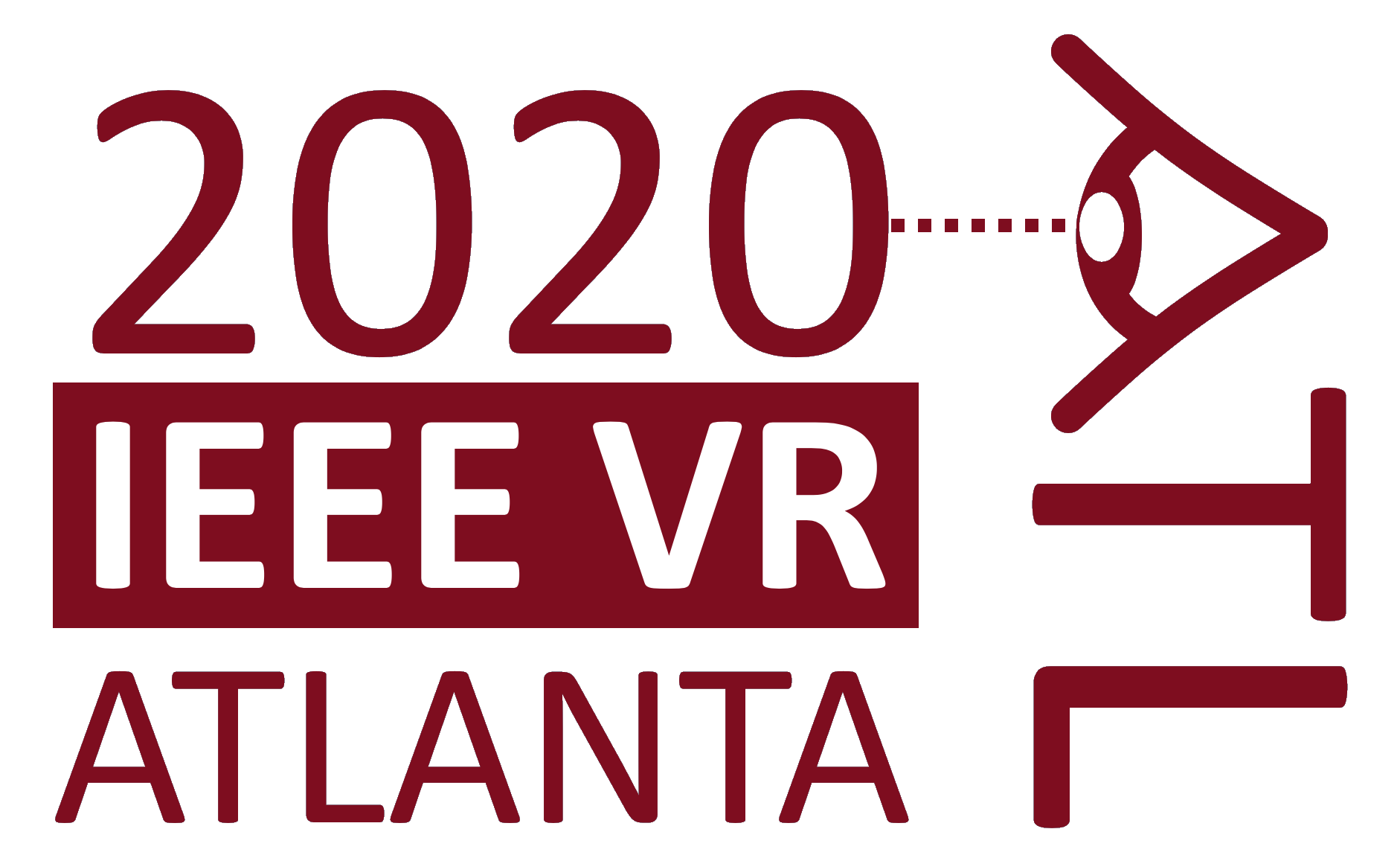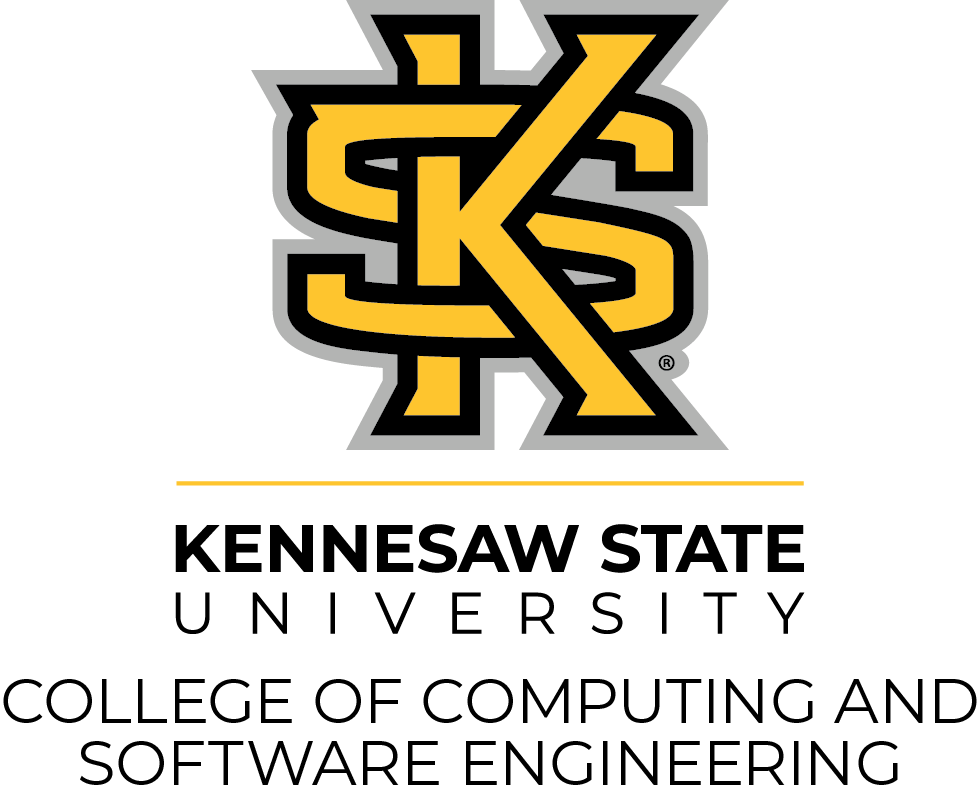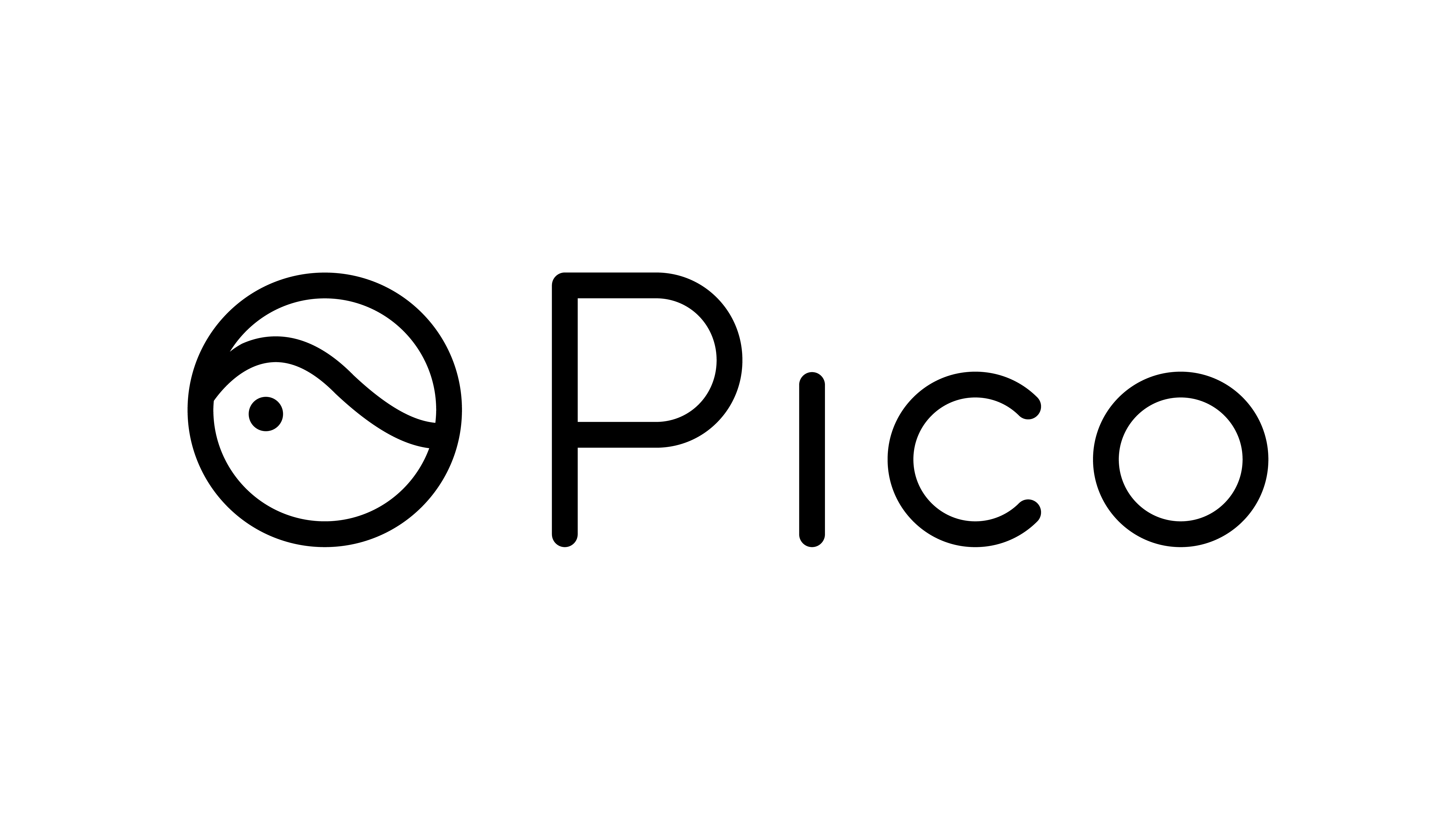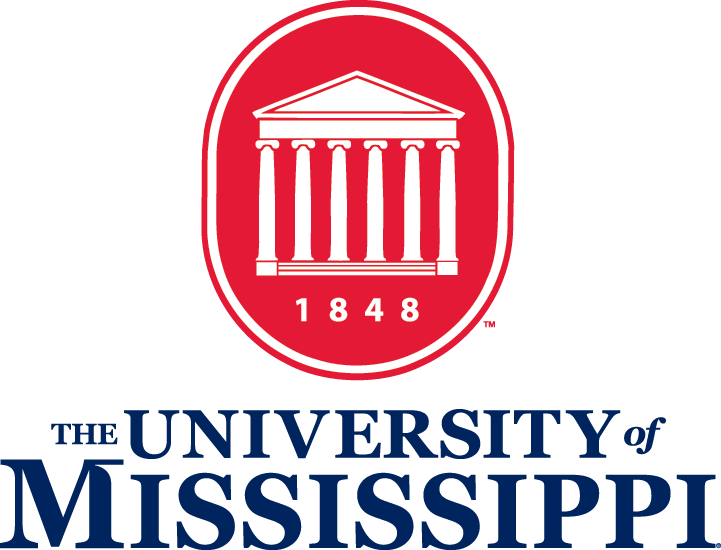
March 22nd - 26th

March 22nd - 26th
Conference Sponsors:
Gold

University of Georgia
Silver

Georgia Institute of Technology
Bronze

The Center of Innovation for Manufacturing - Georgia Institute of Technology

Kennesaw State University

Mozilla

Microsoft Research, Altspace and Mixed Reality

Amazon Web Services

Pico Interactive
Supporter

Emory University

University of Mississippi

Vimeo
Doctoral Consortium Sponsors:

National Science Foundation
Contest Sponsors:

Fakespace Labs
Exhibitors and Supporters
Panels
Panel: Ethics and Privacy in Mixed Reality
Monday, March 23, 2020
Overview
Spatial computing capabilities introduce new ethical and privacy dilemmas, and as MR technologies emerge into the mainstream, these issues become more pressing. This panel will explore the many implications of biometric and derived data, virtual embodiment, and integration of physical world data. It will also address the many intersections with other technologies such as AI and applications ranging from ethics in education to its use in hiring processes. It’s important that we address these now instead of attempting to retrofit solutions later on. This panel will address current privacy problems and anticipate future problems and solutions with experts in the field.
Moderator
Diane Hosfelt, Mozilla
Diane is the security and privacy lead for the Mixed Reality team at Mozilla. She studied at Johns Hopkins University where her research was focused in applications of machine learning to cryptography. She’s currently developing new paradigms for privacy and consent in MR environments
Panelists
Divine Maloney, Clemson University
Divine is a PhD student in Human Centered Computing at Clemson University. He is interested in how innovative technologies will change the way we live and interact. His interests include but are not limited to AR, VR, MR. He has conducted research at Microsoft, MIT, Harvard, Columbia University, University of Central Florida, Vanderbilt University, and Clemson all examining how these technologies impact our lives.
His doctoral research focuses primarily on exploring implicit associations in virtual reality, such as implicit racial bias or gender bias. He is generously supported by Microsoft as one of the first recipients of the Ada Lovelace fellowship. He loves Hawaiian shirts, Boba (bubble) tea, and spreading peace/love
Erica Southgate, University of Newcastle, Australia
Erica Southgate is a maker of computer games for literacy, a technology ethicist and lead author of the 2019 Australian Government roadmap ‘Artificial Intelligence and Emerging Technologies in Schools Research Report’. She is Lead Investigator on the VR School Study, the first research to embed immersive VR in schools in a sustained way for deeper learning. Erica loves social VR and flying high over virtual worlds.
Kent Bye, Voices of VR Podcast
Since May 2014, Kent Bye has conducted over 1500 Voices of VR podcast interviews featuring the pioneering artists, storytellers, and technologists driving the resurgence of virtual & augmented reality. He’s a philosopher, oral historian, & experiential journalist helping to define the patterns of immersive storytelling, experiential design, ethical frameworks, & the ultimate potential of XR. You can follow his work on Twitter @kentbye.
Peter Swire, Georgia Tech
Peter Swire has appointments in the College of Business, College of Computing, and School of Public Policy at Georgia Tech. He is the lead author of the textbook to be certified as a U.S. privacy professional. His government policy experience includes being Chief Counselor for Privacy under President Clinton, the first person to have U.S. government-wide responsibility for privacy policy.
Taylor Beck, Magic Leap
Taylor Beck is the Operational Privacy Lead at Magic Leap responsible for implementing privacy by design processes across the company. Taylor has nearly a decade of experience working in privacy across industries. At Magic Leap, in addition to evaluating and defining privacy requirements for the platform, he has taken a deep dive into Spatial Computing focusing on evaluating the novel data set collected by spatial computing devices. This work has focused on evaluating data for identifiability, categorizing data risk vectors, and working with engineers to design software and hardware mitigations. Taylor has also begun working with the Future of Privacy Forum to engage industry thought leaders to start thinking about defining a privacy forward spatial internet and application ecosystem.
Panel: Libraries as Partners in VR Exposure and Development
Overview
The age of libraries housing only books and other print documents is over. Recent surges in the use of libraries to house technologies call for a discussion about how to best coordinate library services with patrons who may need or want access to technologies. In addition to libraries giving patrons access to information via books, podcasts, public computers, and other forms of media, a growing number are also encouraging patrons to interact with and bring home technologies like virtual reality (VR) and augmented reality (AR). Academic libraries, in particular, are latching onto VR technology and acting as central hubs for college campuses, where students, staff, and faculty may be exposed to VR for the first time in order to aid research and teaching. Libraries also offer both spaces and services related to the technology including VR for check-out, VR development labs, VR classrooms, employees who serve as technical support, VR working groups, referrals to experts, and more. This panel will initiate discussions and pose questions about the ways in which libraries can be catalysts for innovation and collaboration in VR and answer questions like: Why libraries for VR? What are the benefits and limitations of library spaces and services for VR engagement? How can libraries and departments work together to improve instruction of students or research innovation? Can libraries facilitate industry or donor involvement in sponsoring projects?
The panel will begin with each panelist providing a short (5 minutes or less) introduction that describes their interest in library and technology interaction. The moderator will then begin discussion by posing one of the questions listed above to the panel or asking for questions from the audience. Given the somewhat nascent use of libraries for support with technologies for teaching and research, the goal of the panel will be to explore needs of researchers and instructors as well as to share solutions to issues that may be faced across institutions (e.g., lack of space or funding to pursue research in these areas without library support). Panelists will include librarians from institutions that have already begun exploring similar questions in their own systems as well as researchers who have begun using the library as a resource for research and teaching. We hope to increase discussion around other ideas for how libraries can support VR and AR instruction and research while also introducing new researchers to the idea that libraries can play an active role in mixed reality work going forward.
Moderator
Jeanine Stefanucci, Ph.D., Psychology Department, University of Utah
Dr. Stefanucci is an Associate Professor in the Psychology Department at the University of Utah. She has been using VR and AR to study perception and human performance for over 20 years. Her research focuses on better understanding if a person’s bodily states, whether emotional, physiological, or physical, affects their spatial perception and cognition. She has also co-authored the book Visual Perception from a Computer Graphics Perspective with psychology and computer science colleagues. She has recently partnered with the libraries at the University of Utah to conduct her research by sharing technologies and spaces.
Panelists
Greg Bayles, MEAE, The GApp Lab, Entertainment Arts and Engineering, University of Utah
Greg is associate director of the Therapeutic Games and Apps Lab (The GApp Lab), a joint venture between the Center for Medical Innovation and the Entertainment Arts and Engineering program at the University of Utah. In his 5-year tenure at the GApp Lab, which is housed in the Eccles Health Sciences Library, he has developed virtual and augmented reality educational tools and medical interventions for phantom limb pain, diabetes, anxiety, body dysmorphic disorder, and autism spectrum disorder. Greg also teaches courses in “alternative” game development, which incorporates medical, educational, and simulation games.
Elizabeth Dyer, MLIS, AHIP, Abplanalp Library, University of New England
Dyer is a librarian at the University of New England and coordinates the VR medical education project. Since 2016, Embodied Labs VR software has been used with medical, dental, PA, nursing, physical therapy, and other departments to help develop empathy for patients with aging-related conditions including vision and hearing loss, Alzheimer’s disease, and end-of-life conversations. Their nursing program is the first U.S. school to pilot an immersive VR from Oxford Medical Simulation. She will describe three years of data and experiences related to these programs. Dyer is a Senior Member of the Medical Library Association’s Academy of Health Information Professionals.
TJ Ferrill, MPA, Marriott Library, University of Utah
TJ is the Assistant Head of Creative Spaces at the University of Utah’s Marriott Library. He works to increase access to VR equipment and lab space for researchers from many academic disciplines. He has managed several VR deployments, including open lab space for VR development, VR equipment circulation (HMDs and laptop computers), and a dedicated VR classroom with state of the art equipment. His work often entails outreach and engagement activities, introducing newcomers to the ever-growing array of equipment available, meeting with faculty to discuss curricular activities utilizing virtual reality, and consultations relating to VR equipment and software.
Michael Moore, MISt, Health Sciences Library, University of Washington
Michael T. Moore is the Grants Administration and Special Projects Librarian at the University of Washington. He recently collaborated with UW clinicians on an Institute of Museum and Library Services-funded project to explore how to transform static, patient-specific two-dimensional medical imagery into an interactive three-dimensional VR environment. In 2018, he authored Virtual Reality in Academic Health Sciences Libraries: A Primer to inform academic libraries interested in implementing VR services.
Brandon Patterson, MSI, MA, Spencer S. Eccles Health Sciences Library, University of Utah
Brandon is a technology engagement librarian who has created a VR Lab to develop medical simulations with partners throughout the health sciences including departments of dentistry, surgical trauma, kinesiology and history of medicine. Understanding the unique ability libraries have to create interdisciplinary synergy, Brandon co-wrote a book chapter on VR use in libraries and leads a VR+ working group to help centralize campus resources around VR and other display technologies on campus, hosting a VR symposium event in the library every spring.
